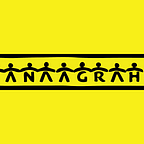Extraordinary Efforts by Ordinary Citizens
An increasing number of citizens are mobilising and becoming leaders in their communities
27-year-old Chandramouli lost his father at the age of eight. His mother raised him single-handedly and faced numerous hardships as a single mother in society, but provided him with everything that she could. “I carry the pain of having a compromised childhood, but the same pain empowered me through school and college to support those in need, fight against injustice and actively engage in serving my community.”
Five years ago, Chandramouli approached his ward police station with a proposal for organising a walkathon to create awareness on anti-social activities and crime. “It was during that time, I learned about community policing.” The HAL police ward recommended the ASM program to Chandramouli, after which he volunteered for two hours every day and extended his services to the community. A few days into the lockdown, Chandramouli received an email from the Community Policing Team regarding the COVID-19 Responder program. The program was looking to register 300 volunteers to support 84 lakh people in Bangalore. The young man who was busy working 12–14 hours a day as a video jockey with various TV channels did not hesitate. After the necessary checks and training program, he was connected to a team of Responders across the city on a WhatsApp group. He did not know what to expect then. Today, two months later, Chandramouli spends up to six hours a day volunteering, sometimes even more.
Chandramouli’s story is of one individual citizen making a difference. The ‘Flyover Beda’ campaign in Bengaluru and ’Save Aarey’ campaign in Mumbai are other such notable citizen-led movements where citizens came together peacefully demanding decisions that are healthy for their city, the environment, for them and the future of their children. Anti-apartheid revolutionary, political leader, and philanthropist Nelson Rolihlahla Mandela expressed “What counts in life is not the mere fact that we have lived. It is what difference we have made to the lives of others that will determine the life we lead.” Simple acts of being caring, contributing and respecting laws and rules, improving conditions in our neighbourhood, getting involved in campaigning for causes, lobbying for or against ordinances or regulations, voting, speaking up against social injustice and working towards equality, fairness, safety and opportunity for all people account for participation.
Today, education institutions have developed strands of civic learning and volunteering. Businesses and corporate support volunteering as a part of their donation and sponsorship, thus helping their employees develop competencies such as leadership, team building, logistics, or public speaking. Information technology is also playing a pivotal role in driving citizenship by creating new types of volunteer arrangements such as online databases, online discussions and social media help to connect, recruit and engage volunteers.
All of this today has made volunteering less confined to geographic boundaries, thus blossoming micro-volunteering and virtual volunteering. The #MaskItBengaluru campaign is one such example. The objective of the campaign is to provide Cloth Masks to those in need and ensuring we don’t negatively impact the environment. Citizens stitch cloth masks at home or donate masks which are picked up by COVID-19 Responders and distributed amongst those in need. This campaign has seen citizens opting to donate masks and even make masks at home. Today, we see an increased awareness among citizens on civic issues and active participation in influencing policy decisions. Focus groups, surveys, online forums etc. are being used to engage public opinion on government decisions and policy development.
An open call from authorities inviting citizens to participate in policy planning provides an opportunity for direct involvement and relationship building and lets them engage as leaders, supporters and advisors. There is the joy of co-creating and shaping their neighbourhood and society. Citizen volunteering strengthens citizen engagement, social inclusion and builds resilient communities.
The year 2020 has proved to be grave until now. At the same time, we have also witnessed many moments of togetherness and hope. Citizens took more responsibility for themselves, their neighbours and their community with solidarity and empathy. Most of all, they assured a continued sense of optimism, promising a society with a big heart.
